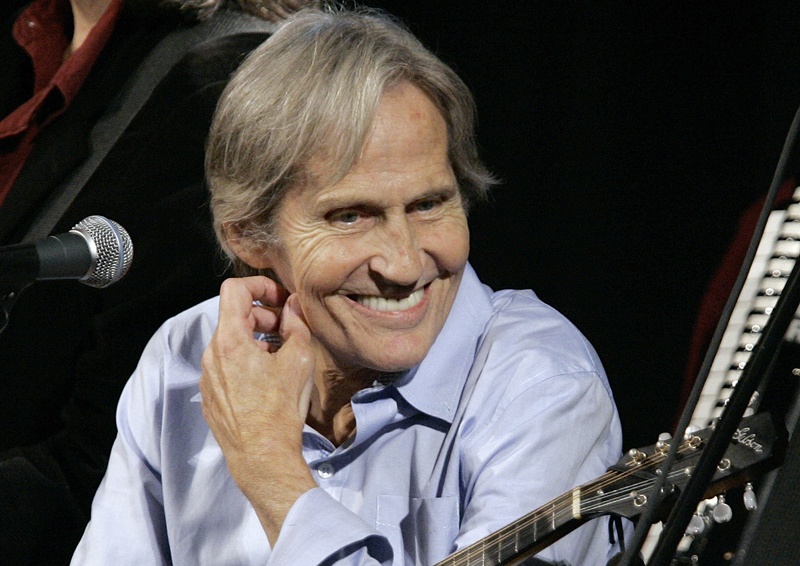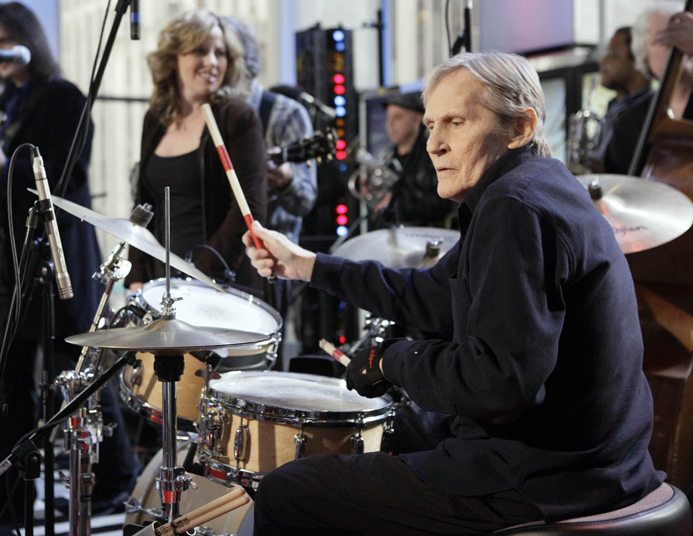When The Band burst onto the pop music scene in the late 1960s, their music was so original, so different than the psychedelic, bubble gum or hard-rocking bands of the day, that it made people stop and wonder exactly what they were hearing.
“When I first heard their music, I remember thinking ‘Whoa, what is this?’ ” said Bob Ludwig, who runs Gateway Mastering Studios in Portland.
“It was something completely unique at the time. It had a big American southern feel to it, which no other music really had then.”
Ludwig, like many others in the Maine music scene, talked reverently about the impact and influence of The Band this week after hearing that drummer and singer Levon Helm was gravely ill with cancer.
Helm, 71, died on Thursday in New York.
But unlike most in the local music scene, Ludwig had a very close connection to The Band’s music. He mastered many of The Band’s albums, beginning in the late 1960s when he was working in New York City.
Mastering is the process of making the final adjustments in the sound of a recording, so Ludwig listened to a lot of The Band’s albums as part of his job over the years, including “The Band” in 1969, “Stage Fright” in 1970, “Moondog Matinee” in 1973, and “The Last Waltz” in 1978.
“His drumming and his vocals were like nobody else,” said Ludwig of Helm. Ludwig met Helm only once, as band member Robbie Robertson was the person Ludwig worked with mostly while mastering.
Ludwig has mastered records from virtually everyone in pop music in the past 40-plus years, including Bruce Springsteen, Queen and The Rolling Stones. But he says The Band is “definitely in my top five of all-time bands.”
Helm was born in Arkansas, where he got to see live performances from blues artists as well as Carl Perkins, Johnny Cash and Elvis Presley. As a teen he became the drummer for rocker Ronnie Hawkins and his Hawks.
The band often toured Canada, and eventually the future members of The Band were all recruited from that country to become members of the Hawks: Richard Manuel, Rick Danko, Robbie Robertson, and Garth Hudson.
After breaking off from Hawkins, the group called themselves Levon and the Hawks and became Bob Dylan’s backing band when Dylan began electrifying his performances, around 1965.
Later, while Dylan and the Hawks were writing new material at a house in Woodstock, N.Y., local residents began calling the group of musicians “the band.” The name stuck. The Band signed with Capitol Records and their first record, “Music from Big Pink” came out in 1968 and landed them on TV’s “Ed Sullivan” show.
From there, The Band’s music played a pivotal role in rock history, steering generations of musicians to an earthy, folksy, story-driven style.
Helm brought Southern charm to the otherwise all-Canadian band. He sang with twang and grit, and left his mark as a vocalist on iconic rock standards like “The Weight,” “Up on Cripple Creek” and “The Night They Drove Old Dixie Down.”
While Robertson was considered the band leader, The Band reflected Helm’s personality. He was raw, ragged and charming. When Helm and his band mates hooked up with Dylan, they made rock history. They wrote and practiced together on a near-daily basis during those years in upstate New York. But before that, they backed Dylan on his first electric tour of the U.K. and later the United States. They were edgy, rough shows and teetered on chaos because Dylan’s audience wanted him to stick with his acoustic music.
But with The Band providing confidence and a musical platform was both exciting and aggressive, Dylan persevered. During that time, he wrote many of his best-known songs. The Band also later accompanied Dylan in the mid-70s, when he returned to performance after a long hiatus. They toured hockey rinks together, and set the early standard for large-scale rock shows.
Dylan’s influence on The Band, and vice-versa, is borne out in the movie “The Last Waltz.” As a farewell before their first breakup, The Band scheduled a marathon concert in San Francisco featuring many of their influences and musical friends. The lineup was a who’s-who of rock, country and blues at the time: Van Morrison, Eric Clapton, Neil Young, Muddy Waters, Joni Mitchell, Ronnie Wood and Ringo Starr, among others.
Dylan had the prime slot, at the tail end of the show.
“You look at bands today doing that, like The Avett Brothers and Mumford & Sons, and they are direct descendents of The Band,” said Chris Brown, marketing director for the Portland-based Bull Moose music store chain.
“There were outtakes of ‘Let It Be’ where George Harrison is talking about how great (The Band) is. You can wonder whether The Eagles and some other bands of the 70s would have happened without them.”
Many of The Band’s best-loved songs were powered by Helm’s folksy Arkansas twang. His look and his voice personified the spirit of The Band.
“His music has been a part of my life since I can remember, sitting on the floor of my folks living room shuffling through my dad’s records. As I looked at the cover of ‘Northern Lights-Southern Cross’ I always listened and thought, ‘If I were to ever be a musician, this is it….right here,” said Nate Soule, 34, guitarist for the Maine-based group The Mallett Brothers Band. “(Don) Henley tried to pull it off (drumming and singing) but Levon is the king, hands down.”
Helm continued to perform as long as he could. He was known for performing concerts at his home studio in Woodstock, N.Y., with invited guests. In 2010 he did a show there with contemporary rockers My Morning Jacket.
He had been scheduled to play a show on July 17 at the Casino Ballroom in nearby Hampton Beach, N.H. with Los Lobos. But that show was recently cancelled.
Staff Writer Ray Routhier can be contacted at 791-6454 or at:
Staff Writer Bob Keyes contributed to this story.
Send questions/comments to the editors.




